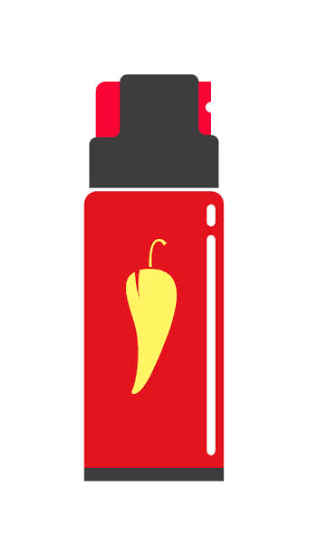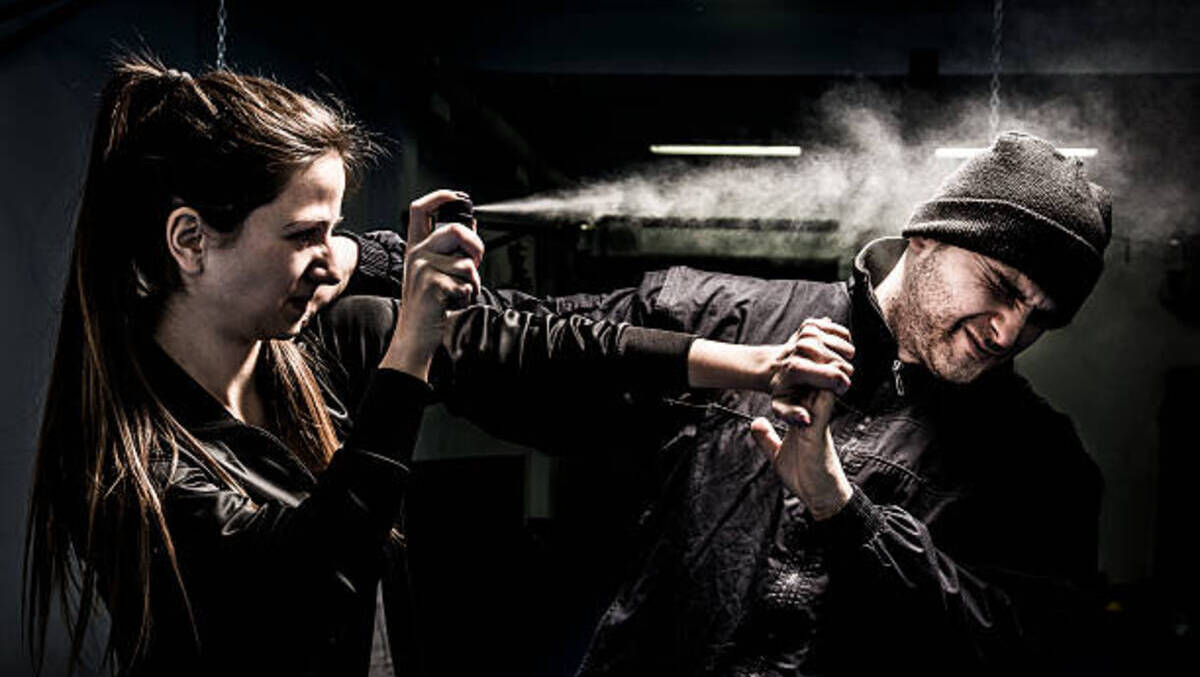In an increasingly uncertain world, personal safety has become a top priority for many individuals. The need for effective self-defense tools has led to the rising popularity of OC spray. But what is OC spray exactly, and how does it work? In this comprehensive article, we’ll delve into the world of OC spray, exploring its mechanism, legal considerations, and its effectiveness as a reliable means of self-defense.
What is OC Spray?
OC spray, short for Oleoresin Capsicum spray, is a non-lethal self-defense tool designed to incapacitate potential attackers. Derived from chili peppers, OC spray contains capsaicin, a powerful chemical compound that causes severe irritation and inflammation when it comes into contact with the eyes, skin, and respiratory system. Its inflammatory effects temporarily incapacitate the assailant, providing the user with an opportunity to escape or seek help.
The History of OC Spray:
The use of capsaicin for self-defense dates back centuries. Ancient civilizations, including the Aztecs, used chili pepper extracts to create defensive concoctions. In modern times, law enforcement agencies adopted OC spray as a non-lethal alternative to firearms. Today, civilians can legally carry OC spray in many jurisdictions, making it a popular choice for personal protection.
How Does OC Spray Work?
When OC spray is discharged, it releases a fine mist or stream that contains capsaicin. The capsaicin causes immediate dilation of the capillaries in the eyes, resulting in temporary blindness. Simultaneously, it triggers inflammation of the respiratory system, leading to coughing, choking, and difficulty breathing. OC spray also irritates the skin, causing intense burning sensations and discomfort. The combined effects incapacitate the assailant, allowing the victim to escape danger.
Legal Considerations for OC Spray:
While OC spray is an effective self-defense tool, its legality varies from one jurisdiction to another. In the United States, for instance, the regulations regarding OC spray possession and usage differ from state to state. Some areas may require a permit to carry OC spray, while others may impose restrictions on its size and potency. It is essential for individuals to familiarize themselves with their local laws before purchasing and carrying OC spray.
Choosing the Right OC Spray:
When it comes to choosing an OC spray for personal defense, several factors should be considered. The concentration of capsaicin in the spray, measured in Scoville Heat Units (SHUs), determines its potency. Higher SHU levels lead to more intense effects. Additionally, users must decide between different spray patterns, such as mist or stream, depending on their specific needs and preferences. It is advisable to opt for a reputable brand with a track record of producing reliable self-defense products.
Key Benefits of OC Spray:
- Non-Lethal Option: OC spray provides an effective means of self-defense without the risk of taking someone’s life, making it a humane alternative to firearms.
- Easy to Carry: Compact and lightweight, OC spray can be easily carried in a purse or pocket, making it readily accessible when needed.
- User-Friendly: OC spray requires minimal training and is easy to use even in high-stress situations.
- Wide Availability: OC spray is widely available for purchase online and in retail stores, making it accessible to the general public.
- Temporary Effects: The effects of OC spray are temporary and wear off after a period, ensuring no long-term harm to the assailant.
Effectiveness of OC Spray:
OC spray has proven to be highly effective in neutralizing threats. Law enforcement agencies worldwide have adopted it as a standard non-lethal weapon for subduing suspects. Studies have shown that OC spray has a success rate of over 83% in stopping attacks, making it a dependable tool for personal safety.
Using OC Spray Safely and Responsibly:
While OC spray can be a valuable self-defense tool, it must be used responsibly and in compliance with local laws. Proper training and practice are essential to ensure that the user can deploy OC spray effectively during a threatening situation. Users should also be aware of wind conditions and potential bystanders when using OC spray to avoid unintentional harm.
Frequently Asked Questions (FAQs):
Q: Can OC spray cause permanent damage?
A: No, OC spray does not cause permanent damage. Its effects are temporary and wear off within a few hours, leaving no lasting harm.
Q: Is OC spray safe to use for personal defense?
A: Yes, OC spray is considered safe for personal defense. Its non-lethal nature minimizes the risk of causing severe harm.
Q: Can OC spray be used against animals?
A: Yes, OC spray is effective against aggressive animals and is often used by hikers and campers for protection against wildlife.
Q: Is OC spray effective on individuals under the influence of drugs or alcohol?
A: Yes, OC spray remains effective against individuals under the influence of drugs or alcohol, as its mechanism is not reliant on pain receptors.
Q: What should I do if I accidentally spray myself with OC spray?
A: If you accidentally spray yourself with OC spray, move to a well-ventilated area, blink rapidly to flush the irritant from your eyes, and rinse your skin with cool water.
Q: Can OC spray be used by people with respiratory issues, such as asthma?
A: Individuals with respiratory issues should exercise caution when using OC spray. It is advisable to consult a healthcare professional before carrying OC spray for personal defense.
Conclusion:
OC spray is a powerful self-defense tool with a rich history and proven effectiveness. Derived from chili peppers, it utilizes capsaicin to temporarily incapacitate attackers, providing individuals with a means to escape danger. However, users must be aware of the legal considerations and choose the right OC spray for their specific needs. When used responsibly and with proper training, OC spray can be a reliable option for personal safety, offering peace of mind in uncertain situations.
Bliss Ferdinand is a resilient single mother and the founder of pepperspraymum.com, a blog dedicated to empowering women and promoting personal safety. With a passion for self-defense, Bliss shares her knowledge and experiences to help other mothers protect themselves and their families. Through her blog, she educates her readers about the effective use of pepper sprays, offering valuable insights, product reviews, and practical tips on staying safe in various situations. Bliss’s commitment to her community has inspired many women to take charge of their own security, making pepperspraymum.com a go-to resource for those seeking practical advice and peace of mind


